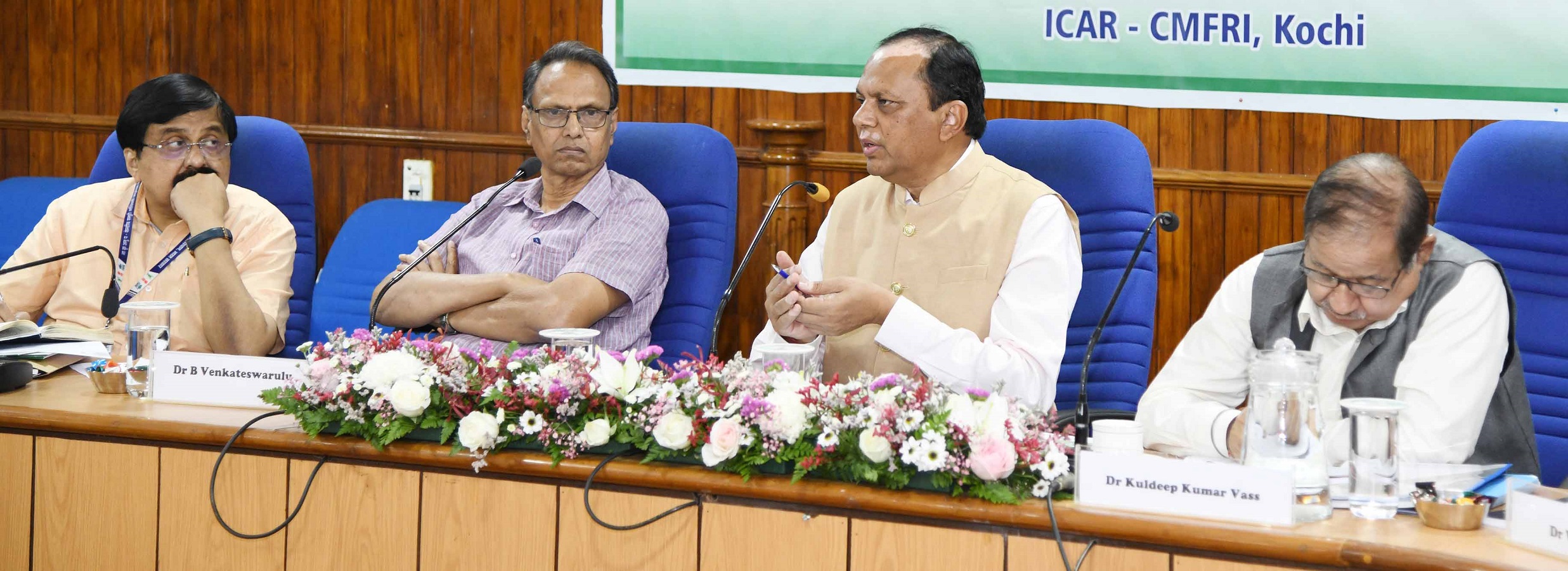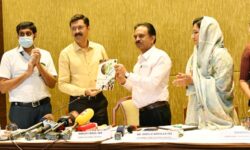
KOCHI:
In a landmark research in assessing the carbon footprint in India’s marine fisheries, the ICAR-Central Marine Fisheries Research Institute (CMFRI) has estimated that the sector emits 1.32 tonne of CO2 (carbon dioxide) to produce one tonne of fish, much lower than the global figure of more than 2t of carbon emission per tonne of fish. This is the assessment of the greenhouse gas (GHG) emissions from total activities in the sector, from pre-harvesting to marketing, by converting it into CO2 equivalent.
The data was presented at a review meeting of the fisheries component of the network research project National Innovations in Climate Resilient Agriculture (NICRA) of the Indian Council of Agricultural Research (ICAR).
The CMFRI found that the harvest phase (active fishing) in the country used more than 90% of the fuel used in the sector with annual CO2 emissions from this phase being 4,934 million kg.
“The country’s carbon emissions from the marine mechanised fisheries sector is 16.3% lower than the global level”, Dr A Gopalakrishnan, Director of the ICAR-CMFRI said. The study was conducted from selected fishing centres of all the maritime states of the country, dividing the fishing-related activities into three phases—pre-harvesting, harvesting and post-harvesting, he added.
The NICRA project is aimed at studying the impact of climate change on agriculture including crops, livestock, horticulture and fisheries and to develop and promote climate resilient technologies thereby addressing vulnerable areas of the country.
As many as five research institutes under the ICAR including the CMFRI and two state agriculture universities are working on the fisheries component under this project.
While presenting the progress of the research works being carried out by the CMFRI, Dr Grinson George, Principal Scientist said the increased intensity of cyclones, sea level rise, and warming of the Indian Ocean have led to changes in marine ecosystems among many others, causing depletion of some fishes and the emergence of some other varieties.
Coastal Climate Risk Atlas
In its efforts to assess the climate change risks in the coastal region, CMFRI identified cyclone proneness, flood proneness, shoreline changes, heat wave and sea level rise as the major hazards that make coastal lives in peril. Works on a Coastal Climate Risk Atlas that marks areas of risks including hazards and vulnerabilities in all coastal districts in India, are in progress.
Climate-Smart Value Chain
In the wake of the disruption of the fish value chain owing to the climate crisis, the CMFRI proposed to develop climate-smart value chain critical points, policy advisory for seafood marketing and a consumer education tool kit for emerging species.
Heat wave affects groundwater
Dr S K Chaudhari, Deputy Director General (Natural Resources Management) of the ICAR presided over the meeting. He said that rise in temperature and heat have a cascading effect on food-producing sectors, including fisheries, as it disrupts groundwater behaviour. “Excessive pressure on groundwater is leading to the presence of more salts on the ground surface”, he said, adding that assessing ecological losses should also be considered while studying the impact of climate change on the food sector.
Dr B Venkateswarlu, Chairman of the NICRA Expert Committee urged scientists to focus on technological innovations and contributions to policy interventions during the time of climate change. Innovative technologies would help fishermen to sustain their livelihood during cyclones, heavy rainfalls and other extreme weather conditions, he said.
Principal Investigators of the NICRA project from ICAR-Central Institute of Brackishwater Aquaculture (CIBA), Chennai; ICAR-Central Inland Fisheries Research Institute (CIFRI), Barrackpore; ICAR-Directorate of Coldwater Fisheries Research (DCFR), Bhimtal; ICAR-National Bureau of Fish Genetic Resources (NBFGR), Lucknow; Tamil Nadu Dr J Jayalalithaa Fisheries University; and Bihar Animal Sciences University presented the status of their research works at the meeting.
Dr K K Vass, member of the NICRA Expert Committee; Dr V K Singh, Director of Central Research Institute for Dryland Agriculture (CRIDA); and Dr M Prabhakar, Principal Investigator of the NICRA, ICAR also spoke on the occasion.




